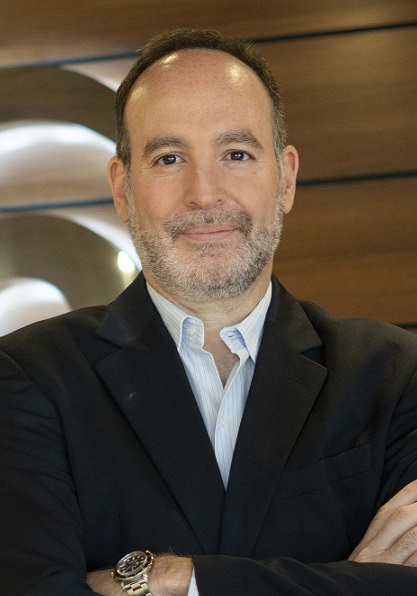On the lighter side of things, we ask Horacio Romanelli, President of ASIET and Director of Regulatory and Sustainability Affairs at Millicom/ TIGO, what makes him tick.

What would you describe as your most memorable achievement?
I believe there is no milestone to highlight only an ongoing experience. I love developing people, and these interactions have shaped and impacted my career path. Building a team and developing people is something I have always done. It has allowed me to be proactive and look for positive opportunities for business growth, working as a team to achieve goals.
What first made you think of a career in technology?
Technology has always been an area that interested me, but I did not get here in a linear way. I am an engineer and started working with finances, then in the hydrocarbon sector, which is highly regulated, where I learned and specialized my knowledge base. After that, I started working in telecom, which I see as a fascinating industry with disruptive technology evolving fast.
What style of management philosophy do you employ in your current position?
I focus on training people and working with teams with open agendas to seek common goals. I work as a facilitator and generator of ideas. I like to be creative in what I do, seeing trends, analyzing them and bringing them to the team.
I also believe in working with other companies and institutions to shape ideas and concepts that can become public policies and national agendas. It happens through collaboration with other groups we work with, such as the Asociación Interamericana de Empresas de Telecomunicaciones (ASIET, in Spanish), which has been working for 40 years to develop telecommunications and promote the expansion of inclusive digitalization in Latin America.
What do you think is the current hot technology conversation topic?
There are several hot topics today, such as those related to privacy, cybersecurity, Artificial Intelligence (AI), and, above all, how to bring connectivity to all people.
Connectivity brings progress to society, improves the economy, helps collect more taxes and makes us more productive. That is why it is essential to discuss alternatives to improve connectivity conditions to close the access gap in the digital society.
How do you deal with stress and relax outside of the office?
I like to stay with my family, spend quality time with them and cook, especially on weekends. I also enjoy traveling and seeing new places. Another thing is that I take long walks to prepare myself before starting the day. That helps me prepare and face the routine relaxed.
If you could go back and change one career decision, what would it be?
My policy is to always think forward. What happened yesterday is used as experience to modify something in the future. I always try to focus on what is coming, with a perspective on the present and the future.
What do you currently identify as the top investment areas in your industry?
From our point of view, we have a mission to promote connectivity and build digital highways for the people, and we are privileged to help modernize countries.
We also have the challenge of looking for ways to lower the cost of producing Internet because this makes the service more competitive and connects more people. Along with this connection, there is everything related to it – such as the Digital Transformation of businesses.
What are the specific challenges of the region when implementing new technologies in Latin America?
The first thing is to understand that we are all partners on the path to achieving connectivity, and we all play a role – the state, the institutions and the companies, which are part of this value chain. Latin America has many opportunities and public-private efforts will help close the digital access gap. But to achieve this, the governments must rethink some of their models.
In the case of Millicom/Tigo, we see that the price of the spectrum is one of the main barriers to increasing connectivity. The countries maintain a historical agenda where the spectrum was used as an instrument to generate income for the state, funding other expenses but affecting the possibility of expanding and developing better infrastructure and connectivity. This model is already obsolete.
What changes have you seen in your job role in the last year, and how do you think they will develop in the next 12 months?
Without a doubt, a surprising change has been the vertiginous increase in the demand for data. Data traffic has grown by over 30% to 40% year-on-year and has brought many challenges to developing the necessary infrastructure to support this growth.
This trend will not decrease, but on the contrary, we expect it to continue to increase. Therefore, the countries need attractive and stable investment policies to get the necessary funding to build proper infrastructure.
What advice would you give someone aspiring to a C-level position in your industry?
My advice is to be open to learning from others and focus on generating and renewing value for the customer and user who seeks to develop the business. Another thing is to be constantly reinventing yourself.
Our professional career is a long-term project that requires a lot of dedication, effort and teamwork.
Moreover, no one gets anywhere alone. It is essential to work as a team with positive agendas to expand the business. I learn from each person and try to understand how others think, which makes me develop my work even better.
Click below to share this article

